Vowel Recognition Vowels Worksheets for Ages 4-6
17 filtered results
-
From - To
Discover our engaging Vowel Recognition Worksheets designed specifically for children aged 4-6! These interactive resources help young learners differentiate between short and long vowel sounds, fostering essential foundational skills. Each worksheet is thoughtfully crafted to make learning fun, featuring vibrant visuals and entertaining activities. Kids will practice identifying vowels through games, matching exercises, and fill-in-the-blank questions that enhance their phonemic awareness. Perfectly aligned with early literacy goals, these worksheets encourage independent learning while supporting classroom instruction at home. Give your little ones the tools they need to master vowel recognition and set them on the path to reading success!
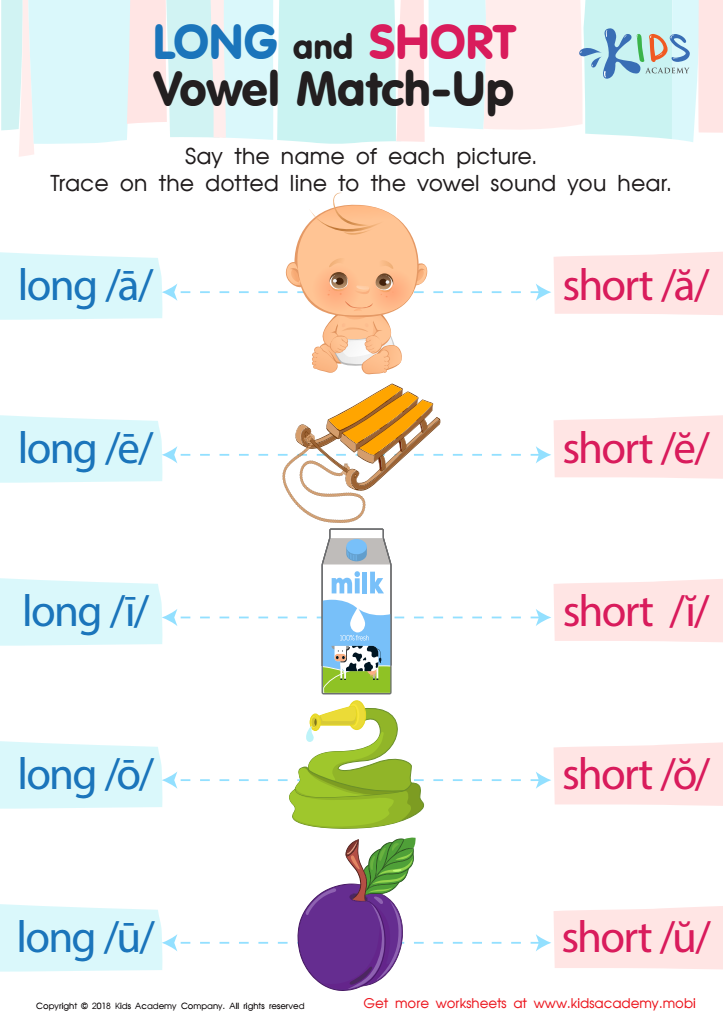

Long and Short Vowel Match up Reading Worksheet


Let's Check Long Vowels: Assessment Worksheet
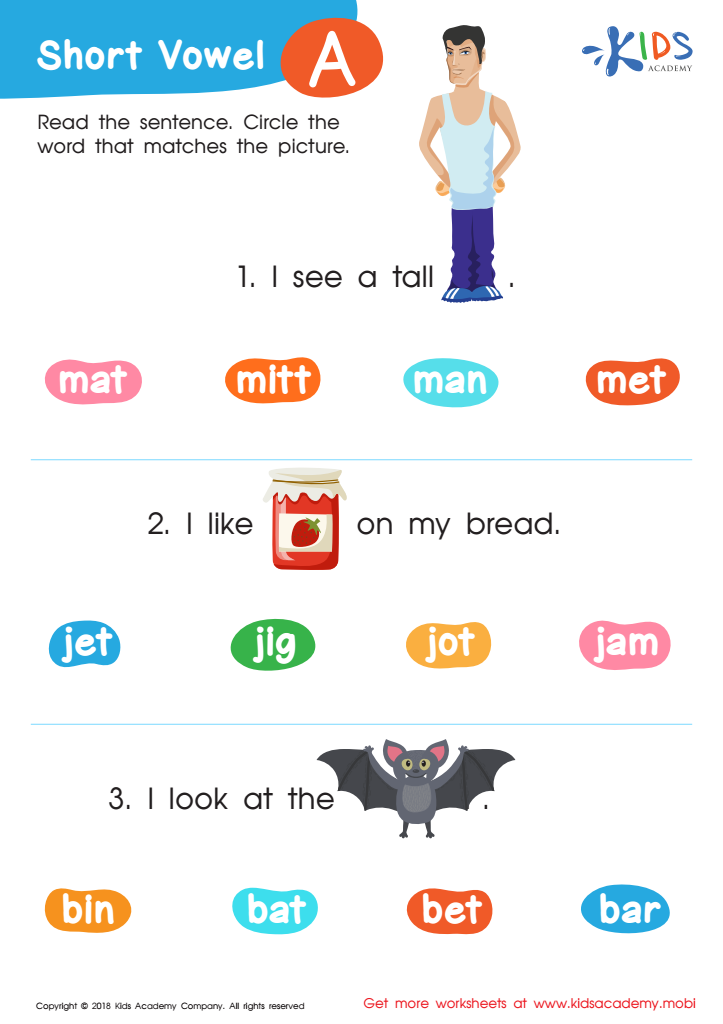

Short Vowel /a/ Worksheet
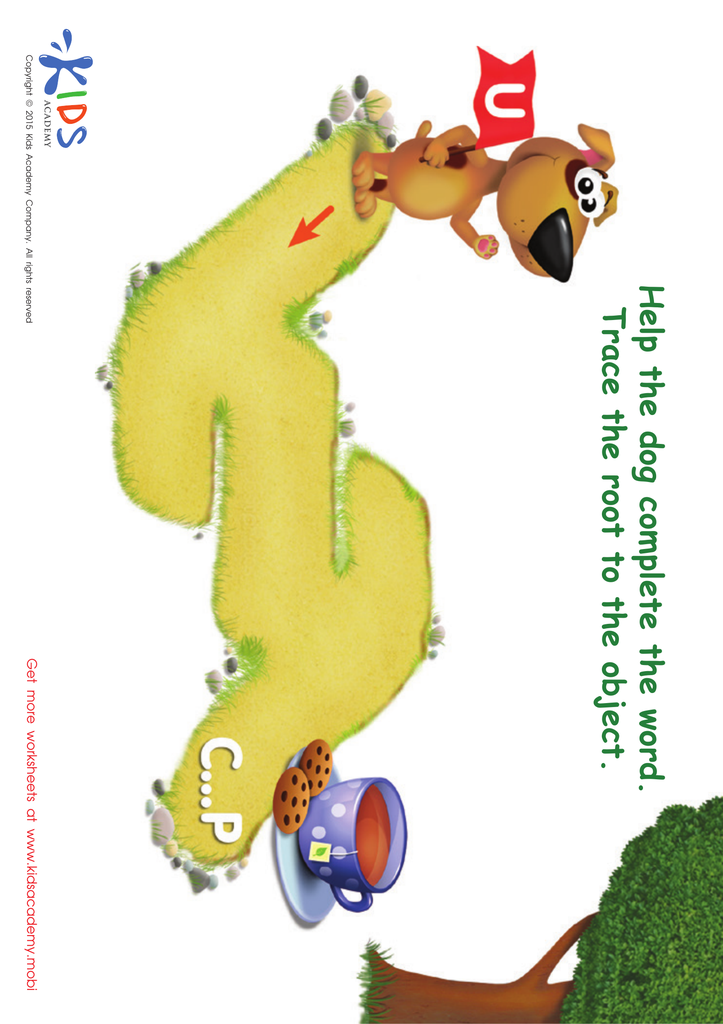

Short Vowel Sound U Worksheet Worksheet
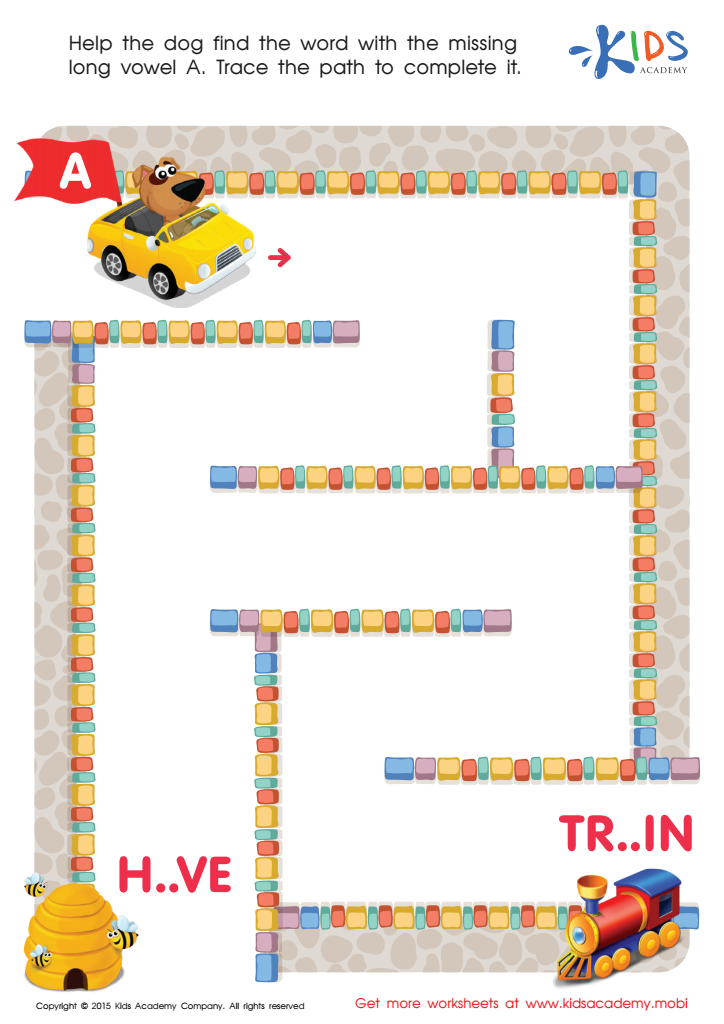

Long Vowel Sound A Worksheet


Short Vowels /e/, /i/, and /u/ Worksheet


Long Vowel Maze /o/ and /i/ Worksheet
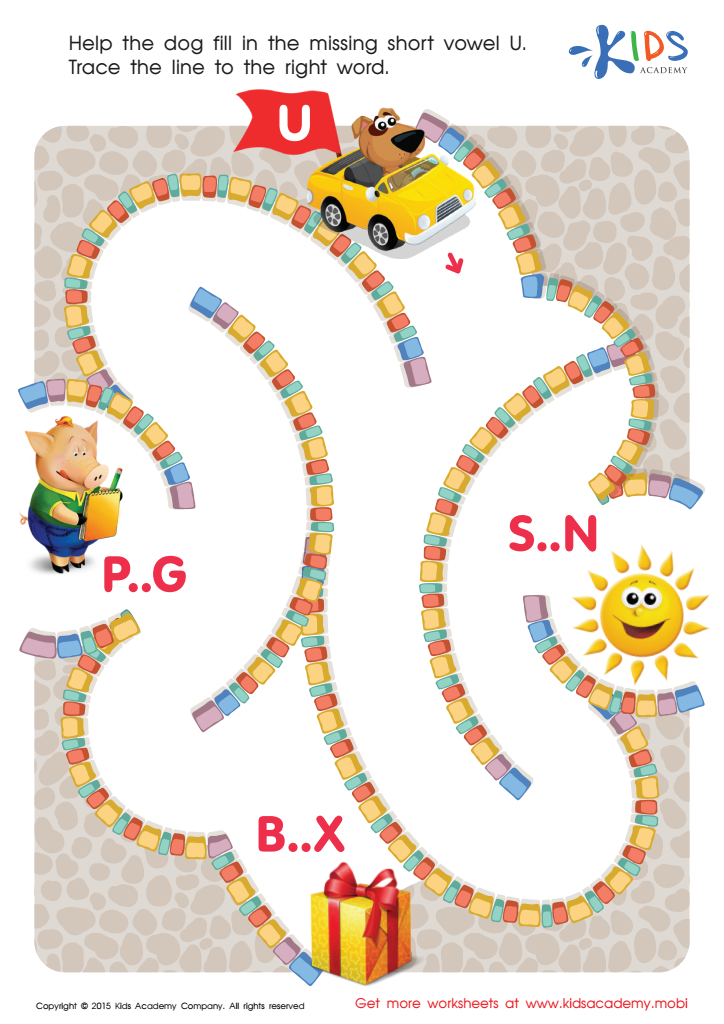

Short Vowel Sound U Worksheet


Short Vowel Eggs Worksheet
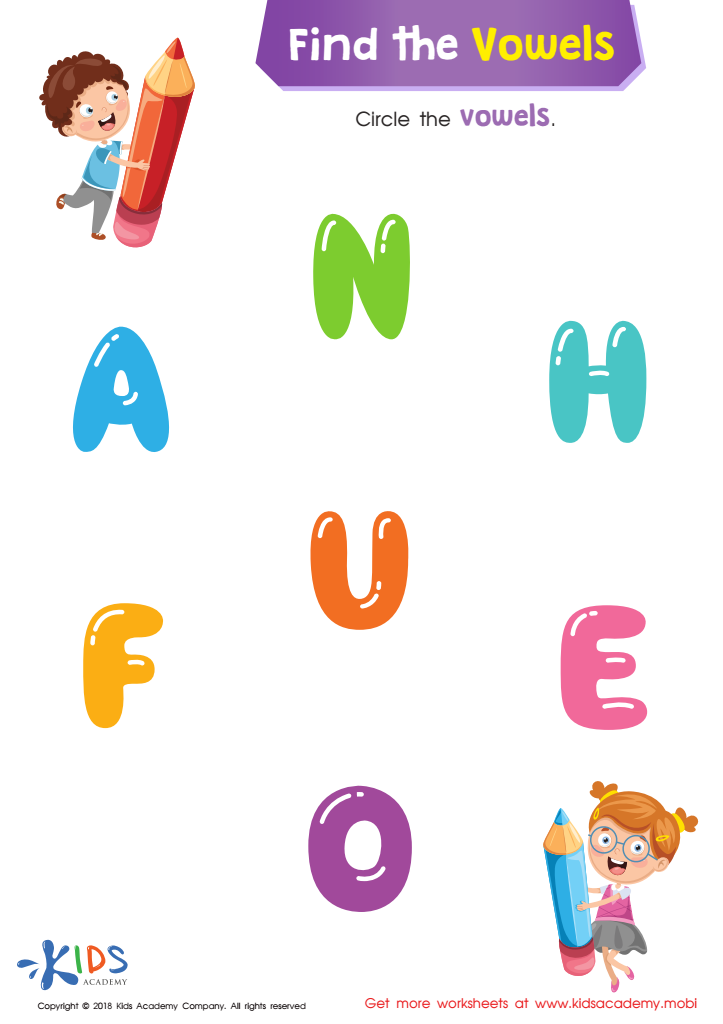

Find the Vowels Reading Worksheet
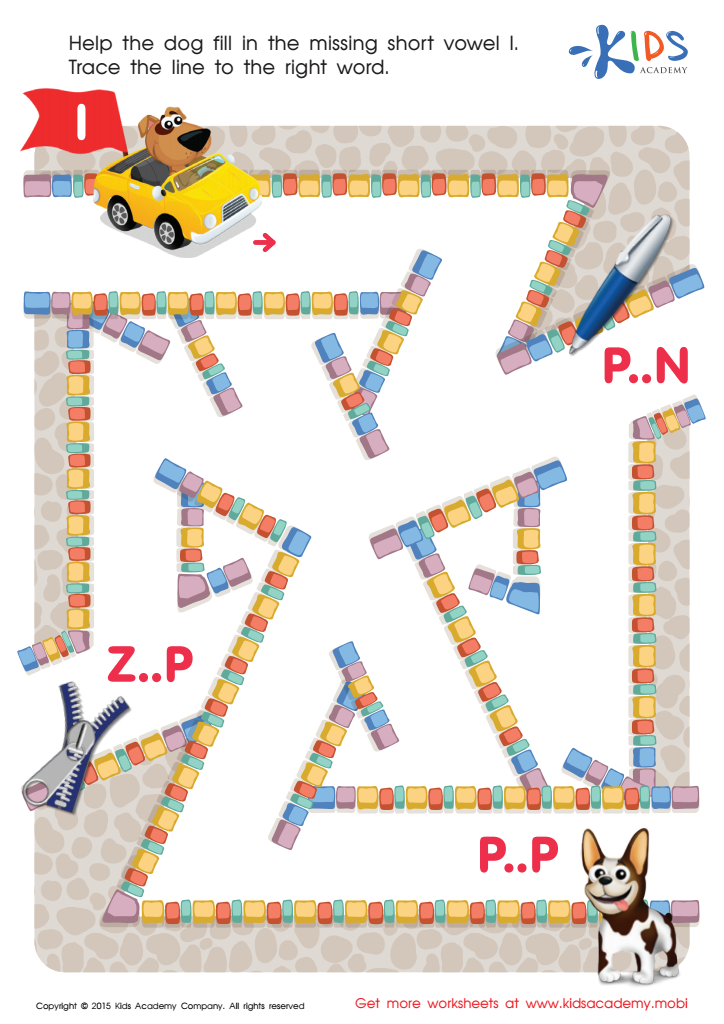

Short Vowel Sound I Worksheet
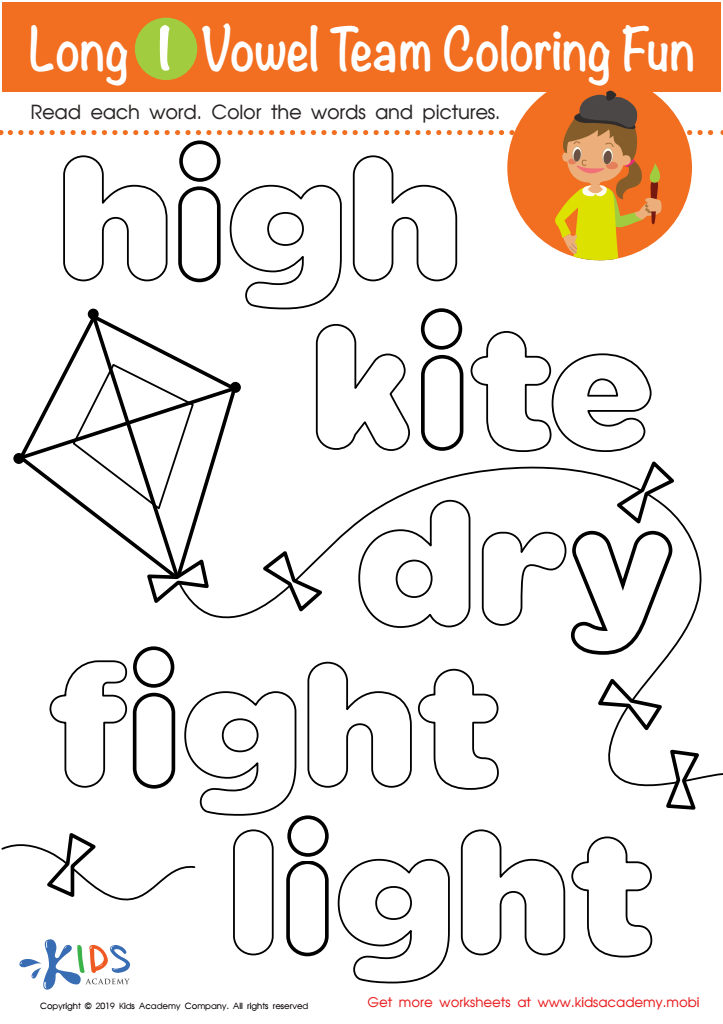

Long I Vowel Team Coloring Worksheet
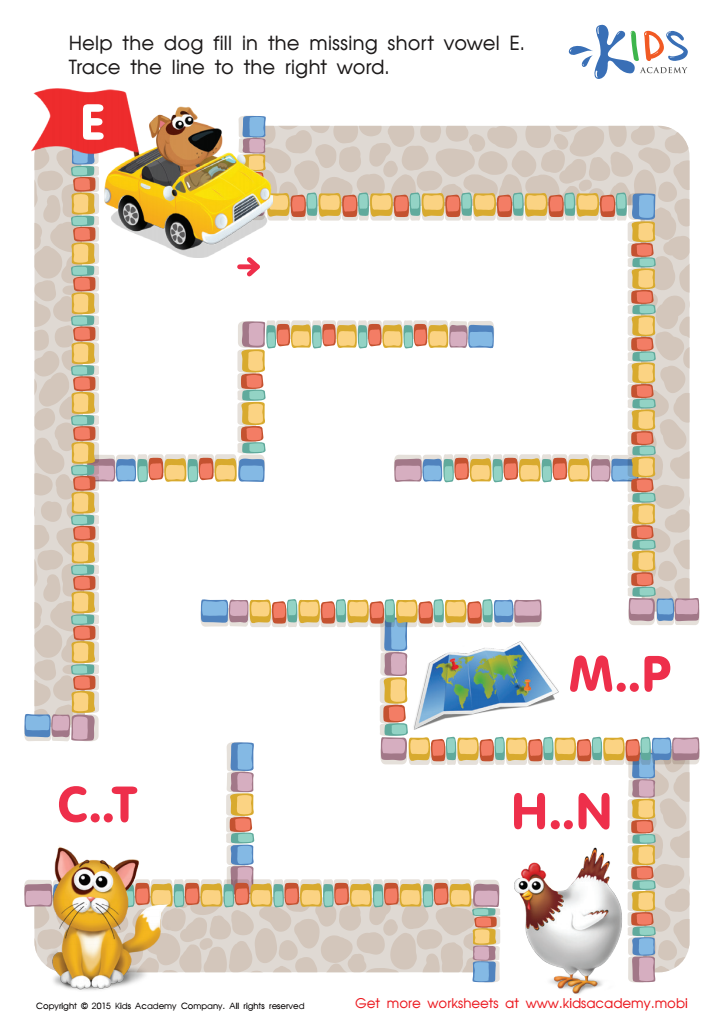

Short Vowel Sound E Worksheet
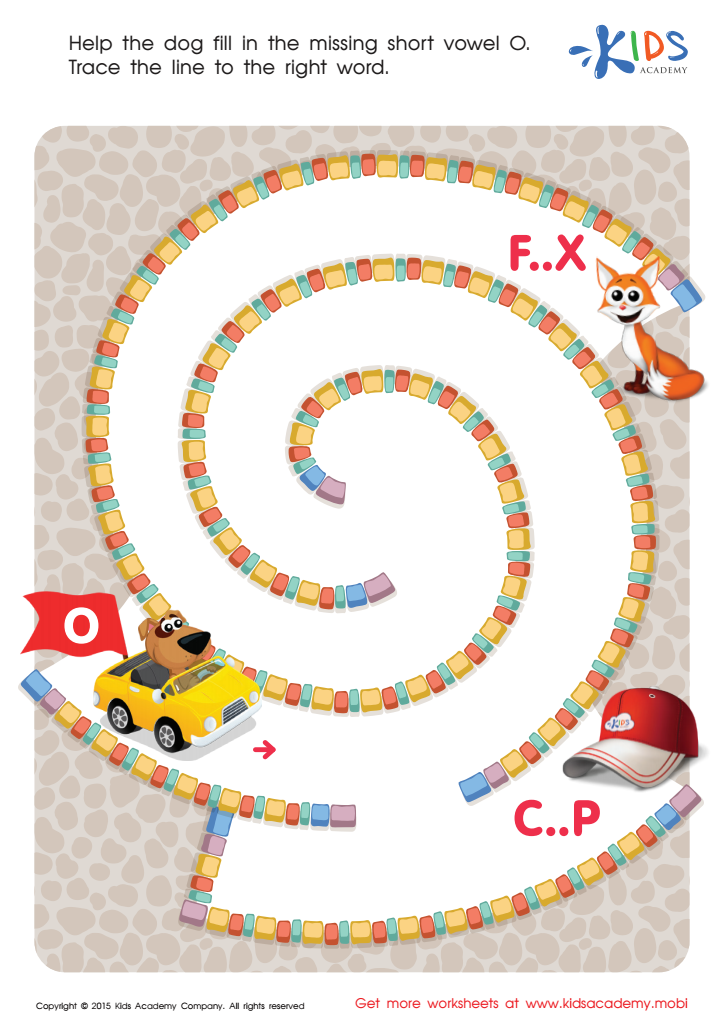

Short Vowel Sound O Worksheet


Long and Short Vowel Sentences: Assessment Worksheet
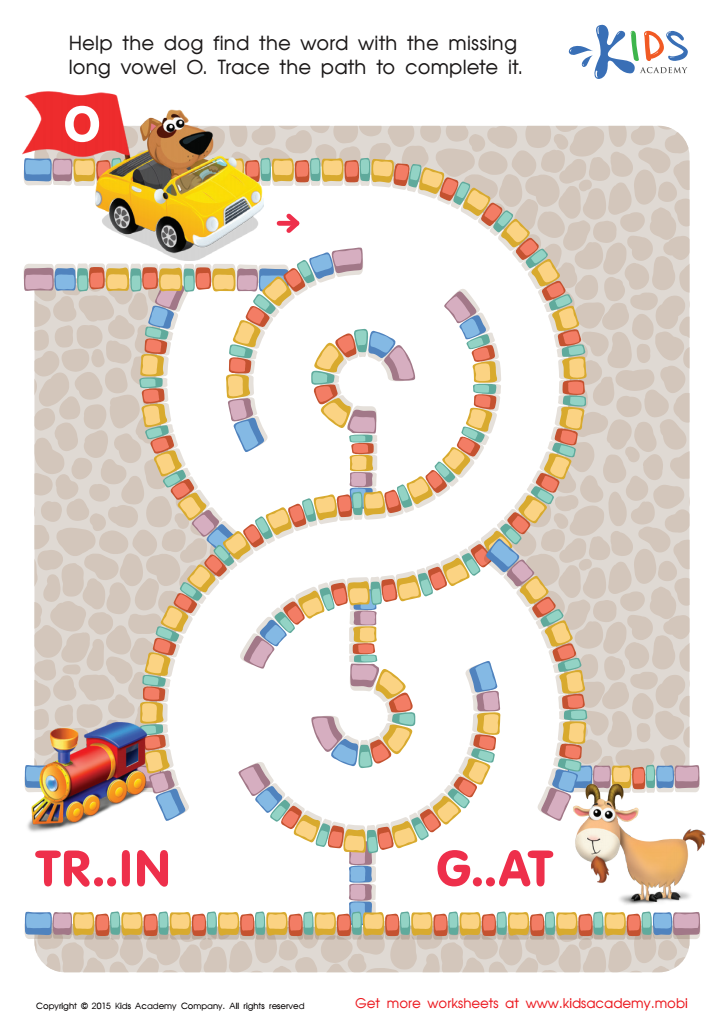

Long Vowel Sound O Worksheet
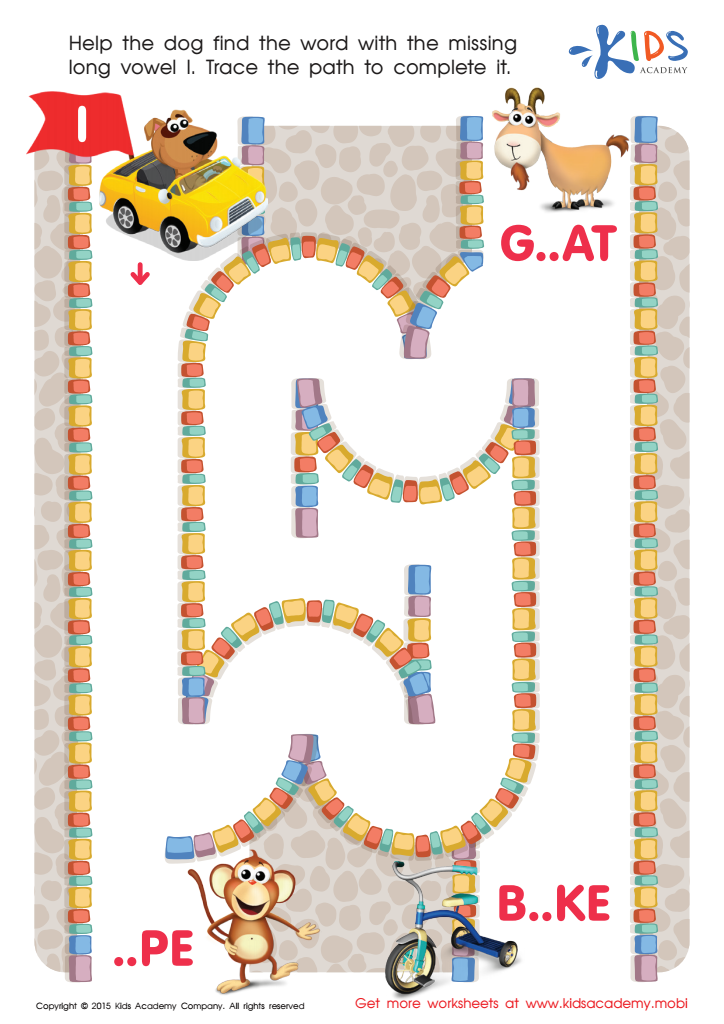

Long Vowel Sound I Worksheet
Vowel recognition is crucial for children aged 4-6, as it lays the foundation for their reading and writing skills. Understanding vowels—A, E, I, O, U—is essential because they are key components of almost every word, enabling children to decode and blend sounds. Early mastery of vowels improves phonemic awareness, allowing young learners to identify and manipulate sounds, which is vital for developing fluent reading abilities.
Parents and teachers should prioritize vowel recognition to support language development and enhance literacy skills. When children become familiar with vowel sounds, they can effectively break down words, improving their reading comprehension and overall communication skills. Moreover, knowledge of vowels fosters confidence in young readers, as they begin to recognize familiar patterns in words.
In addition, engaging children in interactive and playful activities focused on vowels can make learning enjoyable and memorable. This not only accelerates their acquisition of crucial literacy concepts but also strengthens their motivation to learn. By nurturing vowel recognition at an early age, parents and teachers set the stage for lifelong literacy, empowering children to express themselves and engage with the world around them confidently. Ensuring children grasp vowels early promotes their academic success and overall development.
 Assign to My Students
Assign to My Students
















